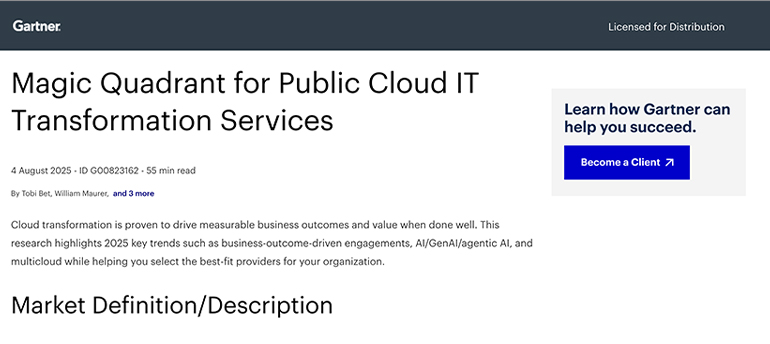Article How Intelligent is Azure SQL Database

By Insight UK / 29 Apr 2019 / Topics: Cloud
Data is the lifeblood of Digital Transformation. As new technologies transform existing workflows and enable entirely new ways of working, it is the expanded and more intelligent use of data that is the common thread.
Big Data analytics make processes more efficient, can predict demand and industry trends, and open entirely new markets that can be exploited. Meanwhile, the better collection and storage of this data will enable entirely new applications in the fields of Artificial Intelligence (AI) and Machine Learning.
But the volume, diversity and complexity of this data is increasing. Organisations need to be able to manage and analyse various sources of structured and unstructured data, ranging from video files to machine data from IoT sensors.
The cloud provides the scale and capabilities needed to collect, classify and analyse this data to help businesses make sense of their information and gain a competitive advantage.
Making sense of your data
The benefits of making the most of your data are obvious but plotting the best path to data optimisation can be a daunting prospect. The first step is to identify what data you have in your possession and where it is stored so you can start to identify information that can add value to your business.
Once you have visibility of your data you can start to make decisions about what data you want to use to benefit your business. You can decide whether a certain dataset has no value, whether some information is being kept for compliance and regulatory reasons, and which data has potential value.
The next step is to manage this data. Traditionally, this has involved the use of a database platform such as Windows SQL Server which manages application’s access to information. However, a cloud-based version known as Azure SQL Server combines the familiar application management toolset of SQL Server with scalability and built-in intelligence.
The use of cloud infrastructure means you don’t have to invest in the purchase and maintenance of equipment. Cloud technology lowers total cost of ownership and reduces the demands placed on your IT department, freeing them to focus on driving innovation within the business.
Cost-effective migration
Azure offers cost-effective migration paths for hundreds of SQL databases with minimum effort. You can even maximise the cost-benefits by reusing existing licences and taking advantage of reserved instances.
On top of this, the platform allows for the development of secure applications. Azure SQL Database benefits from Microsoft’s billion-dollar investments in security and compliance, with customers able to rely on automatic failovers and 99.99% SLAs to ensure business continuity.
But it’s not just about cost. Azure SQL Database offers improved memory usage, throughput, latency and performance, with adaptive learning offering real-time recommendations that improve the performance of applications.
Optimising your business
One of the most common use cases for data is to reduce business expense and to carry out increasingly targeted activities based on the historic performance of applications. These can take the form of reports, interactive dashboards, predictive models, recommendations and automation.
An example of this is predictive maintenance in a factory. If a particular machine gets too hot and this has caused issues in the past, the algorithm can recommend that an investigation is conducted.
AI and Machine Learning applications vary in scope and complexity, so if you have any questions then it’s worth contacting Insight – especially as we were recognised as Microsoft partner of the year for AI in 2018.
If you’re not ready to embrace such a level of intelligence, then PowerBI is a technology a little closer to home. Power BI is part of Microsoft Office 365 and ingests data from a wide variety of sources so you can visualise it as you see fit.
Once you’ve developed that solution, you can view it on any device of your choice, helping people to see data in the form of charts and graphics, rather than datasets and tables.
No matter where you are in your data journey, Insight can help you identify your data and look for opportunities, assist you in your migration to the cloud and then optimise your deployments so you are gaining the maximum possible benefit from that information.
And with extended support for Windows SQL Server 2008 coming to an end, there has never been a better time to embrace the power of data in the cloud.
Find out more about Microsoft Azure SQL Database in our webinar



